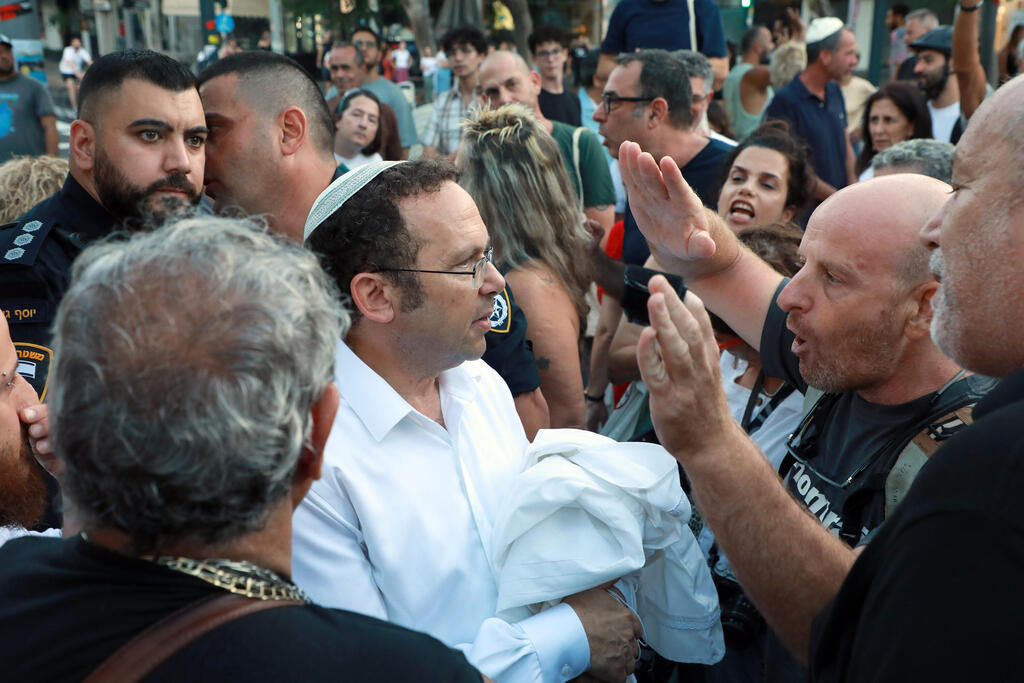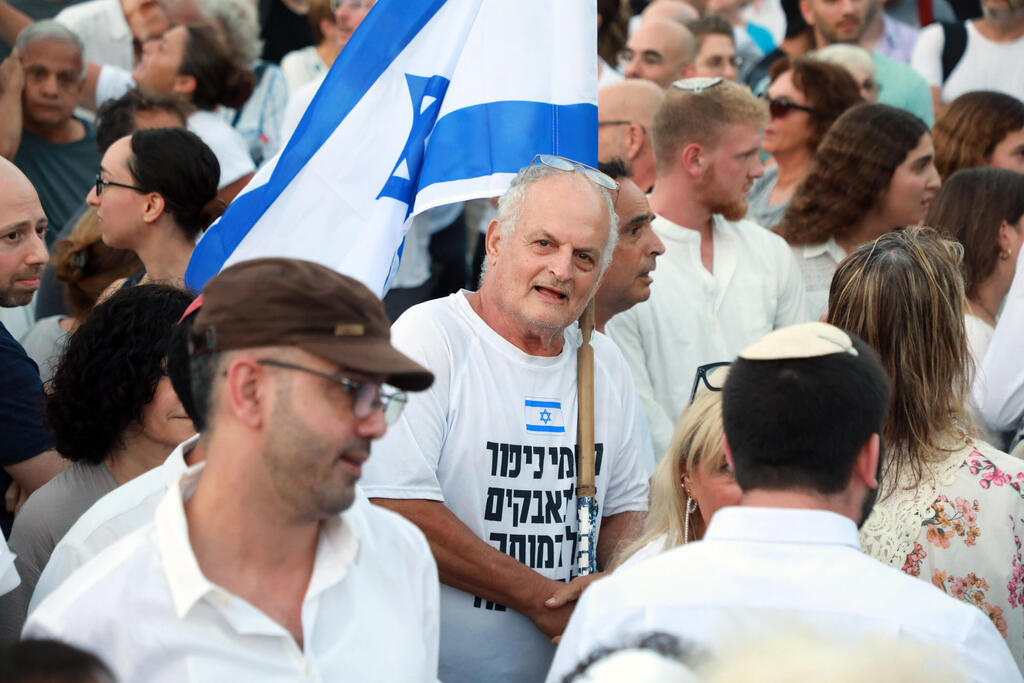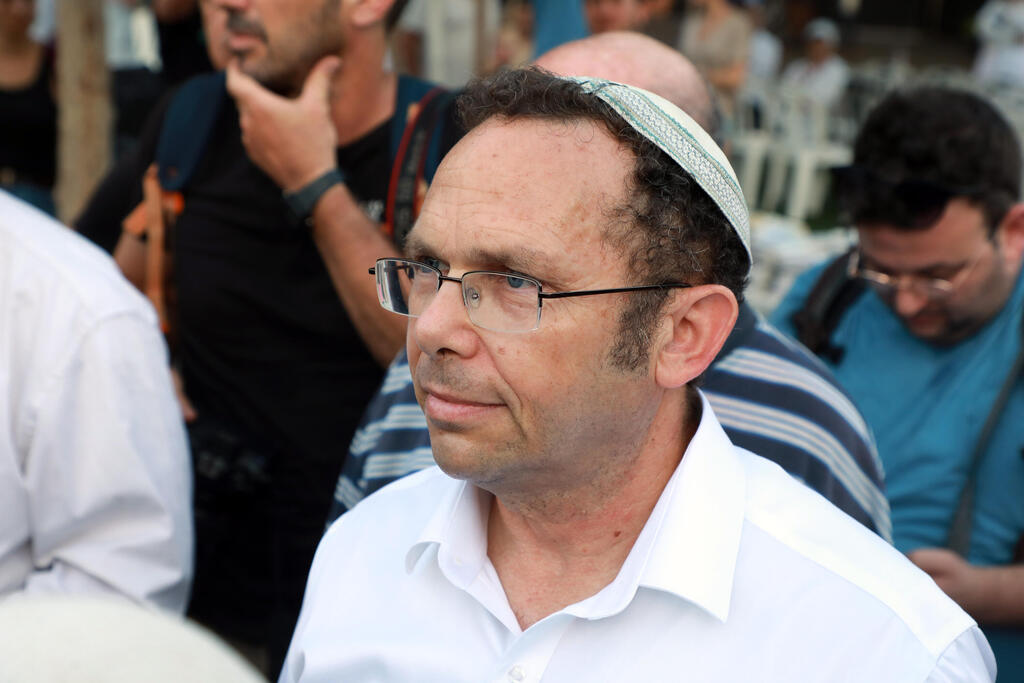Getting your Trinity Audio player ready...
Not like this. Hell no. Not in the name of God, in the name of democracy, in the name of liberalism, in the name of the Jewish people. Let's be respectful to one another in the name of the cursed and unimaginable event we experienced a second after last year's riots. Tel Aviv municipality's decision to ban public prayer is a mistake.
Some may think to themselves: "What is there to be proud of in enclosing public spaces in Tel Aviv?" In a holistic view, the conclusion we should reach is the exact opposite. We should all consider generosity, gentlemanly behavior and hospitality that are required now.
I know Hadas Ragolsky, a member of the Tel Aviv City Council who has become a spokesperson for preventing Orthodox prayer in the city's public spaces and sparked controversy after seemingly celebrating the ban on social media.
We haven't spoken in a few years, but I know very well that she has a huge heart, that she is not an aggressive person, that she would also like to collaborate. Ragolsky, like all of us, has simply been through too much in the last two years.
You can easily get into another fistfight right now. Currently, it's a virtual battle, and on Yom Kippur, two months and a week from now according to the Hebrew calendar, we will all make sure to turn it into a physical confrontation.
Ragolsky will turn out with her liberal legion. There certainly could be quite a few of them, as they are the majority in Tel Aviv. Most of them also work out in the gym. They will come with pride flags, vuvuzelas and megaphones with which they will destroy any trace of prayer.
3 View gallery


Secular Israelis clash with Jewish outreach organization in 2023 Yom Kippur
(Photo: Dana Kopel)
On the other hand, we can easily gather a display of strength that will not shy away from confrontation. Masses of settlers with a military track record can assemble in Tel Aviv. It is technically possible to gather hundreds or thousands. What will the city do in front of 5,000 worshipers wrapped in tallit in a hundred different locations?
Is this what we want?
The truth is that I can really understand both sides. The liberals are terrified of the takeover of the public spaces in the liberal stronghold which is neither stable nor safe in their opinion.
On the other hand, some people want to pray in Tel Aviv. Some really want to do it outside. There are those who are unable to imagine that on the holiest day for the people of Israel, it would be impossible to hold a mass public prayer in public spaces in the State of Israel.
What is required more than anything in the relationship between the different tribes in Israeli society is proportionality. Due to panic, trauma and stress, contemporary Israelis have an uncontrollable urge to manage everything on the fringes.
If we really had the proportionality and hospitality we deserve, the Tel Aviv Municipality and Hadas Ragolsky would announce: "Come in peace, dear brothers." Or, we could hold two separate prayers that do not oppose one another: an Orthodox prayer and an egalitarian prayer. Ragolsky herself will demand to address the Orthodox congregation. She will talk about the holy day and about our connection with ourselves, without a single word of incitement.
In the egalitarian prayer, Israel Zaira, the head of the Jewish outreach organization Rosh Yehudi, will not demand secular people return to their religious values but only convey the message of reconciliation between the Jewish people.
Ten minutes after breaking the fast, the two will dismantle the prayer area together. Those who fasted and those who did not will jointly stack the chairs, hug each other and schedule another meeting in the square in 364 days at the latest.
Why can't we do that?



